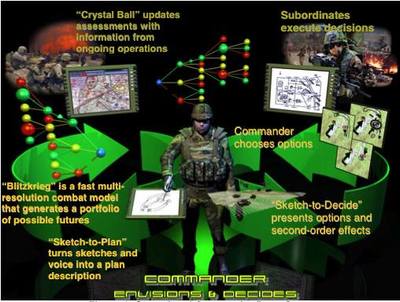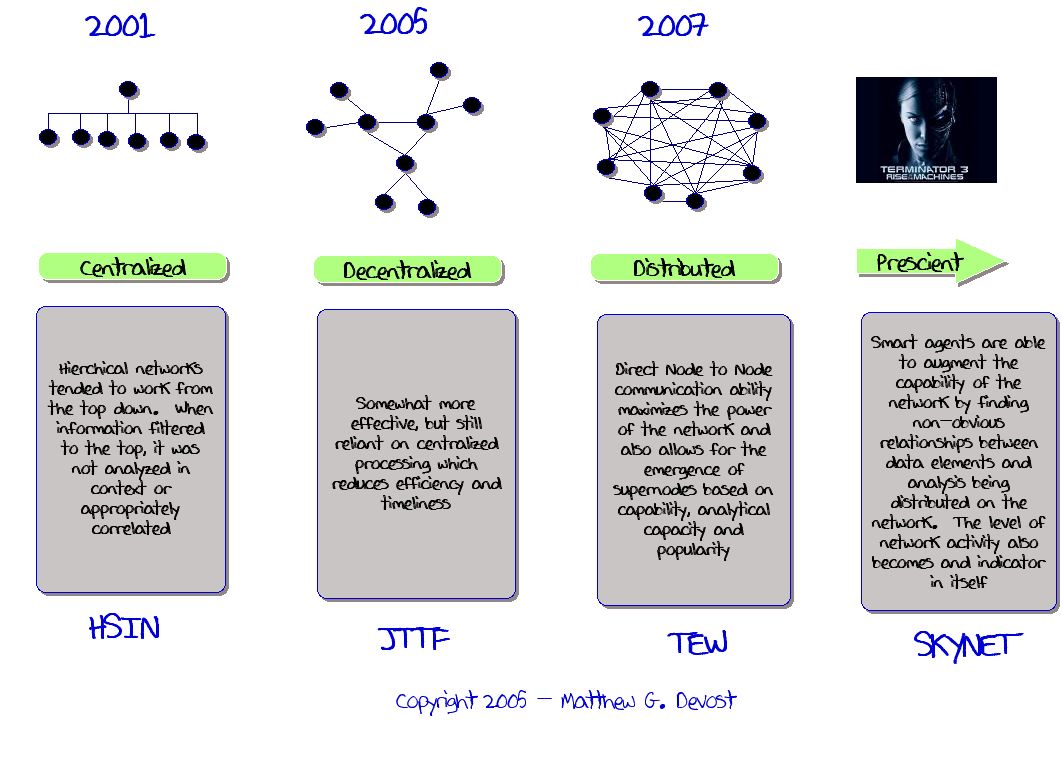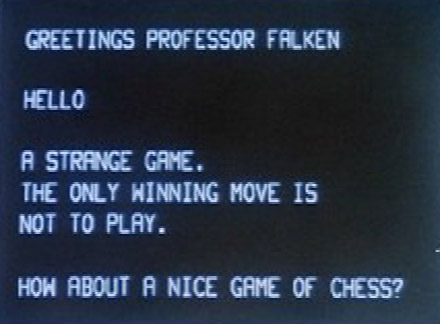Researcher's Analysis of al Qaeda Images Reveals Surprises
The first time I've missed BlackHat in years and they cover something terrorism related....
Neal Krawetz, a researcher and computer security consultant, gave an interesting presentation today at the BlackHat security conference in Las Vegas about analyzing digital photographs and video images for alterations and enhancements.
Using a program he wrote (and provided on the conference CD-ROM) Krawetz could print out the quantization tables in a JPEG file (that indicate how the image was compressed) and determine the last tool that created the image -- that is, the make and model of the camera if the image is original or the version of Photoshop that was used to alter and re-save the image. Link--->
Second Life Terrorism....again.
This terror campaign, which has been waged during the past six months, has left a trail of dead and injured, and caused hundreds of thousands of dollars' damage. The terrorists belong to a militant group bent on overthrowing the government. But they will never be arrested or charged for their crimes because they have committed them away from the reach of the world's law enforcement agencies, in the virtual world known as Second Life. Link --->
A Must Read Essay by Kevin Kelly
Kevin Kelly's book Out of Control was very influential in my early research. His new essay takes things to an entirely new and somewhat uncomfortable intellectual level. Selected excerpts below...
THE TECHNIUM AND THE 7TH KINGDOM OF LIFE
A Talk with Kevin Kelly
What is the meaning of technology in our lives? What place does technology have in the universe? What place does it have in the human condition? And what place should it play in my own personal life? Technology as a whole system, or what I call the technium, seems to be a dominant force in the culture. Indeed at times it seems to be the only force — the only lasting force — in culture. If that's so, then what can we expect from this force, what governs it? Sadly we don't even have a good theory about technology.
The prospect of genetic forking is probably the most divisive issue I could imagine for our species and would engender conflicts at a scale that will make some of today's inherently irresolvable issues — abortion, cloning, etc. — pale by comparison. There will be people who would not only declare that they want to remain untouched (the "Naturals") but would insist that no one has the right to remake themselves or their unnamed descendents.
Others will clearly side with humans remodeling themselves and the species in any direction possible. It's not so far away, either. The unanswerable questions are already beginning. Is a sprinter with two prosthetic carbon-fiber springs instead of legs, disabled or enhanced? If he wants to compete in the Olympics, are his springs a crutch, or a jet pack? What is a human anyway?
Hollywood and science fiction authors are the new theologians. They've been asking these essential existential questions way ahead of the rest of society. The rising popularity of maverick authors like Philip K Dick will move him (and others of his ilk) into the core mainstream, as the themes he explored become the central questions of the coming century.
What is the difference between fake and reality? Who are we? Are we many or one? Where do we begin and our minds end? These are old themes, but with new answers and alternative story lines, and it's not just the artists that are asking these questions.
We are reaching down deep into the culture so that everybody has to ask these very big questions. It's no longer the job of philosophers, nor avante guard artists — but ordinary citizens. With each new headline in USA Today, everyone is being asked, What is a human? A vernacular theology, in a certain sense, is one of unanticipated aspects of this technological culture.
On the Front Line in the War on Terror
Interesting article by Judith Miller contrasting the different counterterrorism approaches in Los Angeles and New York City. Both cities have been on the cutting edge in their own unique way...
Despite their differences, both the NYPD and the LAPD agree that a key way to crush incipient terrorist cells and thwart terrorism is to use local laws and follow locally generated leads, which, after all, is what good police departments do best. Link--->
Another Toaster Picture...

I will never tire of this. This variant is actually a toaster running Linux. Personally, I welcome our toaster overlords. Link--->
Dilemma of the Patriotic Hackers
Haft of the Spear alerted me to this manifesto, which couldn't help but remind me of its 1994 counterpart.
Death of the OODA Loop?

Interesting article at Wired discussing some new initiatives at DARPA to support decision-making on the battlefield. Most notably, they seek to compress the OODA loop into one prescient technology.
Specifically, the "venerable Observe Orient Decide Act (OODA) loop is no longer viable for an information-age military." To fight a fast-moving foe, these four tasks have to now happen all at once. That's the goal of Deep Green. Link--->
The SKYNET references remind me of a slide I put together in 2005.

Of course, at what point does Deep Green present us with this dilemna?

Robert Scoble is Media
Fascinating blog post here, which was discovered via this link.
Compelling look at the value of all these new social network sites we keep joining, but haven't quite figured out what they are there for.

